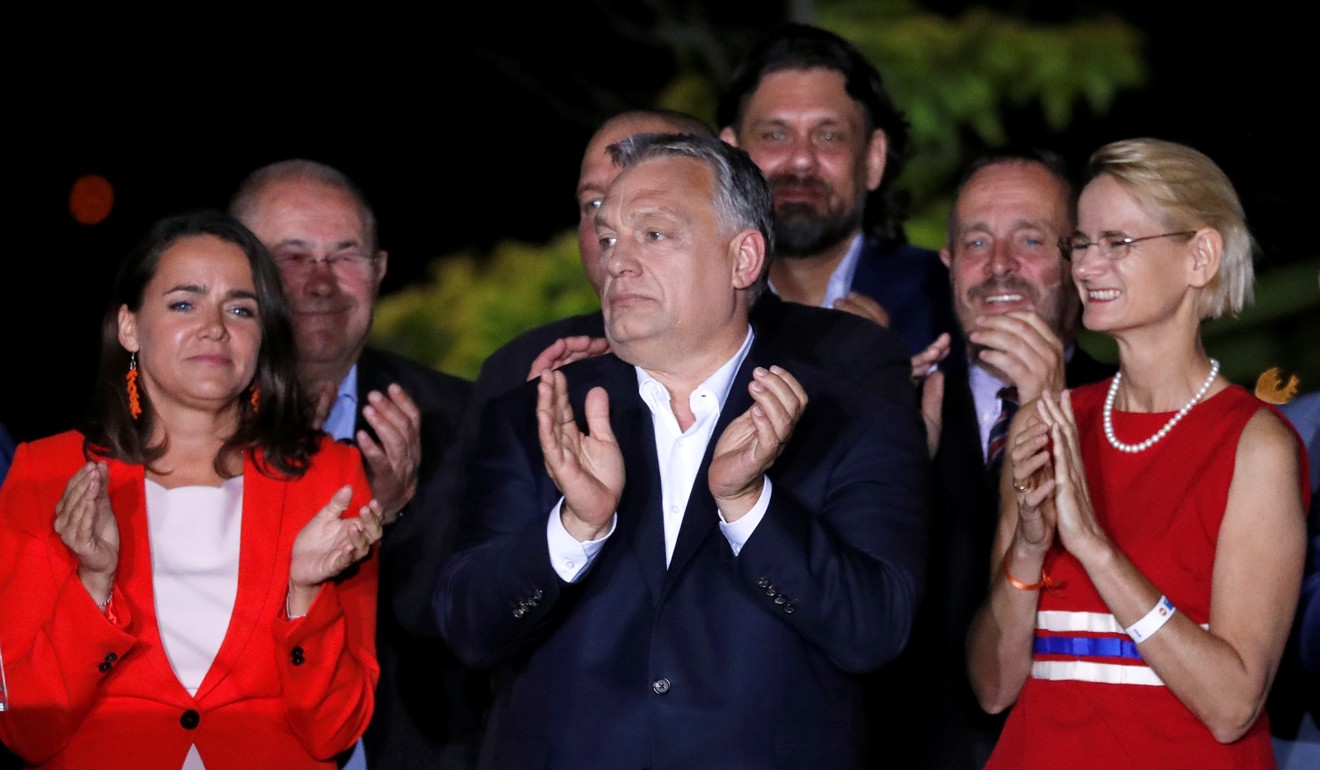
Has Aung San Suu Kyi found common ground with Hungary’s Viktor Orban over ‘growing Muslim populations’?
- Aung San Suu Kyi’s government has refused to offer assurances to Rohingya now living in refugee camps in Bangladesh
- Orban, meanwhile, has an equally bad track record, his government declaring a ‘crisis situation due to mass immigration’ in 2015

From her failure to speak out against ethnic cleansing to imprisoning journalists, the reputation of Aung San Suu Kyi in the west has taken a battering in recent months.
But the leader of Myanmar has found a new ally in far-right, staunchly anti-immigrant Hungarian prime minister Viktor Orban.
In a rare trip to Europe, state counsellor Aung San Suu Kyi, the Nobel Peace Prize laureate who was once the figurehead of the fight for democracy in Myanmar, met Orban in Budapest. There, the two leaders found common ground on the subject of immigration and Islam.
“The two leaders highlighted that one of the greatest challenges at present for both countries and their respective regions – Southeast Asia and Europe – is migration,” read a statement released after their meeting. “They noted that both regions have seen the emergence of the issue of coexistence with continuously growing Muslim populations.”
Once lauded as the great democratic hope for Myanmar, Aung San Suu Kyi, who was elected as civilian leader in 2015 after living under house arrest by the military for 15 years, has proved a marked disappointment to most western governments who were her champions.
Her failure to condemn the military’s violent crackdown on the Muslim Rohingya minority in 2017 – which saw thousands of Rohingya raped and killed in what the UN described as an exercise in ethnic cleansing – and her defence of the military’s brutal actions against Myanmar’s Muslims have proved particularly contentious.

Aung San Suu Kyi’s government has since repeatedly failed to offer assurances to the million Rohingya now living in refugee camps in Bangladesh, where they fled over the border for safety, that if they return their security and pathway to citizenship would be guaranteed.
Orban, meanwhile, has an equally bad track record. His government declared a “crisis situation due to mass immigration” in 2015, stirring up fear in Hungary over an alleged threat of migrants. The Council of Europe’s commissioner for human rights released a recent report accusing Orban’s government of using anti-migrant rhetoric that fuels “xenophobic attitudes, fear and hatred”.
Aung San Suu Kyi has increasingly spoken out against the imposition of western ideas and principles in Myanmar, a view which was reflected by Orban in the statement released after their meeting, where he emphasised his rejection of the “export of democracy” from other western countries.
A spokesperson for the Myanmar government could not be reached for comment.
Aung San Suu Kyi’s trip to central Europe was with the aim to strengthen economic ties in the region. Prior to Hungary, she visited the Czech Republic where she met with Prime Minister Andrej Babiš.